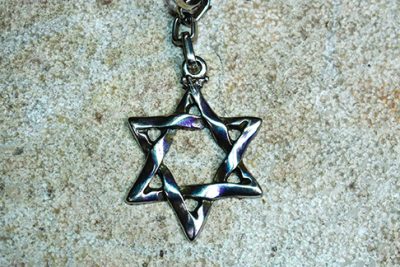
by: Janet Aslin, BFP Staff Writer
Although the phrase, “When life gives you lemons, make lemonade” has not been credited to a rabbi but rather to an American philosopher of the early 1900s, it could have been. The idea of taking something bitter, an adversity or difficult circumstance and bringing good out of it is a very Jewish way to look at life. And sadly, throughout the centuries, the Jewish people have had many opportunities to put this into practice.
In 1948, the modern State of Israel was born and immediately plunged into a war that claimed more than 6,000 lives. During the nearly 72 years since, Israelis have lived in a rough neighborhood, surrounded by those who seek their annihilation. Through it all, Israel has sought peace and hoped for a better future for its children. Perhaps no others have been challenged with this reality more than the people living near the Gaza security fence—communities facing the constant threat of rocket fire from terror groups in the coastal enclave. Here are two examples where rocket shrapnel—something intended for destruction—is being changed into objects of beauty to be enjoyed.
 Yedidya and Shiran Harush are a young couple raising their family in Shlomit, a tiny community 700 meters (2,296 ft) from the Egyptian border. It is also very close to Gaza and is one of the communities that has endured more than 13,000 rockets and mortars since 2005, when Israel left the Gaza Strip in a bid for peace.
Yedidya and Shiran Harush are a young couple raising their family in Shlomit, a tiny community 700 meters (2,296 ft) from the Egyptian border. It is also very close to Gaza and is one of the communities that has endured more than 13,000 rockets and mortars since 2005, when Israel left the Gaza Strip in a bid for peace.
The idea for the rocket necklace was born in 2014, as Yedidya and Shiran sought a way to take a piece of shrapnel through airport security on a visit to the United States, where the Jewish National Fund planned to present it to the governor of California. They decided to try turning the shrapnel into a piece of wearable art.
The twisted and jagged pieces of Qassam rockets are hardly attractive—the remains of a weapon of war, intended for death and destruction. However, once the metal pieces have undergone the process of cleaning, grinding and polishing, they become works of art, things of beauty. Many of the couple’s striking necklaces incorporate the shape of the Land of Israel or the Magen David (Hebrew for the “Star of David”).
The jewelry-making process itself has turned out to be healing and therapeutic for the couple. Speaking to the Jerusalem Post, Yedidya said, “Even in the darkest and most negative times, we turn that into something positive. It’s an amazing message to the world. We are the people of Israel, and we don’t war. Instead, we focus on light and positivity.”
Visit their website at https://www.rocketnecklace.com/ to see the wide array of beautiful jewelry that is being created from pieces of metal originally launched in hatred. “Our prayer is that one day we will run out of materials,” Yedidya says.
Another small community in Israel’s Gaza periphery has produced a similar initiative—Rockets into Roses. Yaron Bob, who lives in the small moshav (collective community) of Yatev, is putting his skill as an artist, blacksmith and welder to use as he transforms the twisted and jagged remains of Qassam rockets into beautiful roses, candlestick holders and menorahs (seven-branched candelabras). These items “symbolize the perseverance of the people of Israel. Living symbols of Israel’s endurance in the face of Hamas and Islamic terror,” Bob shares via his website, www.rocketsintoroses.com.
Like the community of Shlomit, Yatev is also on the frontlines when it comes to rockets launched from the Gaza Strip. Residents have less than 15 seconds to find shelter when they hear the Code Red alert siren.
Searching for a way to respond to the horror and uncertainty of the rocket attacks, Bob began to form roses as an expression of peace. In an interview with CBN, Bob said, “I needed to make something that will say growth and prosperity and to make something out of the destruction and after the ruin of the Qassam.” Each rose takes between three and four hours to create and is welded onto a piece of metal shaped like the nation of Israel.
Each piece is unique and provides patrons with a way to stand with Israel in the face of ongoing terror. CBN writes about Bob, “His goal is to somehow let the world know people here are not hungry for war and that they want to make something beautiful.”
Both the necklaces and roses were ideas born from the reality of the threat of incoming rockets and possible death. The hatred represented by each launch could have generated a similar response in those being targeted. However, we see two Jewish families making the choice to respond in positive ways—making lemonade out of lemons, so to speak.
Most of the proceeds from their sales are used to benefit the residents of southern Israel. Yedidya and Shiran donate to the Jewish National Fund for the construction of bomb shelters in communities bordering the Gaza Strip. Bob gives to Operation Lifeshield, an Israeli nonprofit organization that builds portable bomb shelters and places them in communities under the threat of rockets.
These are only two examples of the many ways the Jewish people living in Israel, a land threatened by its neighbors, have chosen to respond to hatred and violence.
Photo Credit: Click on photo to see photo credit
All logos and trademarks in this site are property of their respective owner. All other materials are property of Bridges for Peace. Copyright © 2025.
Website Site Design by J-Town Internet Services Ltd. - Based in Jerusalem and Serving the World.